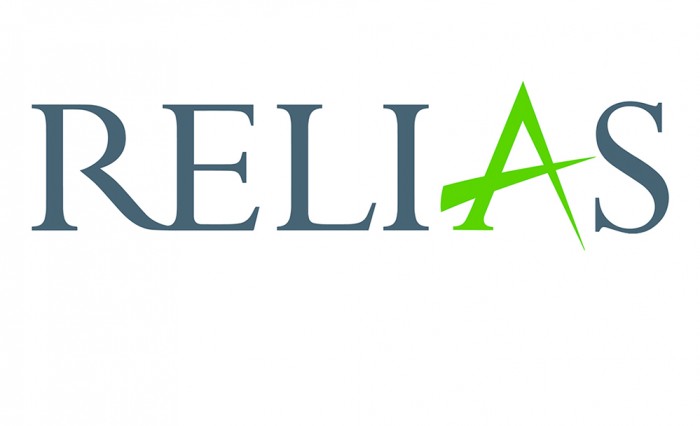Jim Sharp
Guidance For School Postvention During COVID-19
Please follow the link for a newly developed document on adapted postvention considerations for schools. It is the result of a collaborative effort by OMHSAS and the STAR Center at the University of Pittsburgh through the Garrett Lee Smith Suicide Prevention Grant. This resource aims to provide guidance in the midst of physical distancing, virtual operations, and closures due to COVID-19. Please feel free to disseminate this resource to your school contacts and their community behavioral health partners. If you have any questions, please contact RCPA Children’s Division Director Jim Sharp.
OCDEL to Hold Short Term Budget Briefing Call
Please join OCDEL Deputy Secretary Tracey Campanini for a briefing on Pennsylvania’s short-term budget for the first five months of FY 2020–21 on Thursday, June 4, 2020, from 2:00 pm – 2:30 pm.
Please note: OCDEL will still host the planned ELC/SICCC meeting scheduled from 1:00 pm – 2:30 pm on Friday, June 19, 2020.
Topic: ELC/SICC Budget Updates
Time: Jun 4, 2020 02:00 pm Eastern Time (US and Canada)
Join from PC, Mac, iOS or Android: https://paiu.zoom.us/j/96907989787
Or join by phone:
+1 646 558 8656 or +1 301 715 8592 (US Toll)
877 369 0926 (US Toll Free)
855 880 1246 (US Toll Free)
Meeting ID: 969 0798 9787
International numbers available: https://paiu.zoom.us/u/akhahBZM1
DHS SansWrite Licensee Portal Training
SansWrite Licensee Portal Training
This is for Licensees only. We have 150 spots for this training. I will contact any acceptors of the invite over 150 to give further instructions.
If unable to attend, the recorded version will be emailed to all Licensees.
Tue, Jun 2, 2020 2:00 PM – 3:00 PM (EDT)
Please join my meeting from your computer, tablet or smartphone.
https://global.gotomeeting.com/join/308036725
You can also dial in using your phone.
(For supported devices, tap a one-touch number below to join instantly.)
United States: +1 (571) 317-3112
– One-touch: tel:+15713173112,,308036725#
Access Code: 308-036-725
Kathy Montag, MBA
Project Manager
Office of the Secretary
Performance Management Office
Pennsylvania Department of Human Services
625 Forster Street, Harrisburg, PA 17120
[email protected]
RPCA Telehealth Survey Closes Wednesday, June 3
The RCPA Telehealth Survey will close at end of day on Wednesday, June 3 as we begin our data review process. With your outcomes and feedback we will create an RCPA telehealth white paper position statement supporting our members’ utilization of telehealth on sustained platforms.
The data will also be a critical part of our ongoing efforts with DHS, the BH MCOs, and the work involved with telehealth implementation cross the Commonwealth.
To access the survey, please follow the link to the original RCPA Telehealth Survey Alert below:
If you have questions, please contact your RCPA Policy Director.
Behavioral Health Telehealth Survey for Individuals and Their Families
The Office of Mental Health and Substance Abuse Services is seeking input from individuals and their families who have received behavioral health services, on their experiences with telehealth during COVID19, to guide the future of behavioral health telehealth in Pennsylvania. An online survey is now available through Monday June 22, 2020.
This is a critical piece to the efforts to create a sustained platform for telehealth across the Commonwealth. We urge our RCPA members to facilitate this with your clients/consumers/families so OMHSAS and stakeholders can understand the positive impact the use of telehealth has had on service delivery. It is this information that becomes part of the foundation for the creation of processes and regulations in the future. If you have any questions, please contact your RPCA Policy Director.
Questions regarding the survey or behavioral health telehealth in Pennsylvania can be directed to this email.
DOH & DHS Provider COVID-19 Testing Survey Request
Please see this letter from the Secretary of Health, regarding the testing strategy for licensed residential programs. In the letter there is a link to an LTCF testing survey to complete, which DHS is coordinating with each licensed residential program in order to understand the current testing environment. Also included are links to the Governor’s testing strategy. Please complete the survey by Tuesday May 26, 2020
RCPA will continue to work with our stakeholders on the implementation needs of Governor Wolf’s “3 Pillar Plan” for our members. The Department of Heath and DHS look to have the completed survey no later than Tuesday, May 26.
OCYF Bulletin Updated PA Safe Haven Act 201
The Office of Children, Youth and Families (OCYF) has released Bulletin 3490-20-01, “Pennsylvania Safe Haven Act 201 of 2002 ‘The Newborn Protection Act’ as amended by Act 91 of 2014 and Act 68 of 2017.” The purpose of this bulletin is to transmit requirements and guidance related to legislative changes to the Newborn Protection Act as amended by Act 91 of 2014 and Act 68 of 2017. These changes include allowing police officers at police stations and emergency services providers on the grounds of an entity employing emergency services providers to accept newborns, as well as an optional provision for Safe Haven locations to provide an incubator for the acceptance of a newborn. This bulletin rescinds and replaces OCYF Bulletin 3490-11-01, Implementation of Act 201 of 2002, previously released in July 2011. Questions regarding this bulletin should be directed to Ms. Teresa Musser, Human Service Program Specialist in OCYF’s Bureau of Policy, Program and Operations as outlined on the first page of the bulletin.
If you have further questions, please contact RCPA Children’s Division Director Jim Sharp.
RCPA Member Telehealth Survey
As part of RPCA’s ongoing effort with members’ and stakeholders’ support of the telehealth expansion and the building of a sustainable service platform, we are asking members to complete this telehealth survey. Because many organizations provide telehealth across multiple service areas (i.e. Children’s, D&A, Adult Outpatient, etc.); we respectfully request that one survey be completed for each of those program areas in which you are providing telehealth. The data we collect will be instrumental in our collective efforts with DHS, managed care organizations, and other critical decision makers to ensure telehealth has a place in your continuum of care. Thank you.
DHS Releases Act 18 FAQ/Guidance on Fingerprinting
The Department of Human Services (DHS) has released an FAQ/guidance on ACT 18 fingerprinting standards. The Act provides for a temporary suspension for the FBI Fingerprinting requirements in the Child Protective Services Law (CPSL).
The act covers both new and existing employees; however, RCPA strongly advises reviewing these standards with your leadership and Human Resources professionals, as they do not cover all positions required to obtain fingerprints, including new school employees. Additionally, there are stipulated requirements for obtaining fingerprints if you live in geographic regions with open Identogo fingerprinting sites, employee file documentation guidelines, as well as timeframes for the relief period.
To view the Act 18 guidance and FAQ, use this link. The document was created by DHS to provide guidance on Act 18 of 2020 and fingerprinting during the COVID-19 pandemic. This document is also available on the DHS website. If you have additional questions, please contact RCPA Children’s Division Director Jim Sharp.















